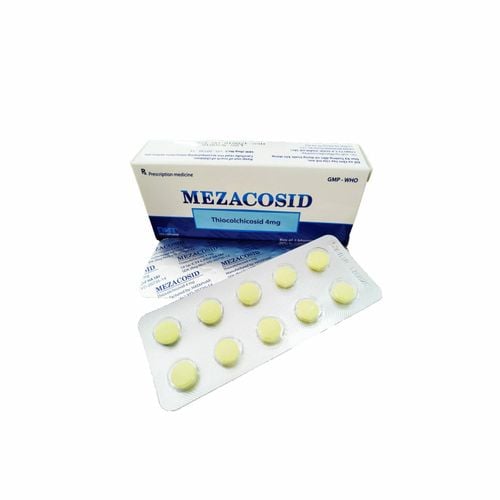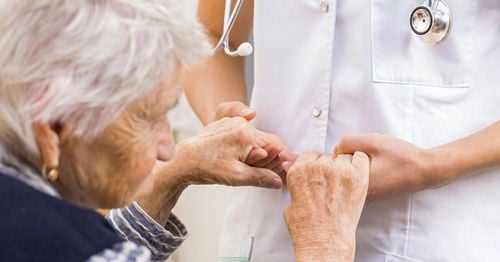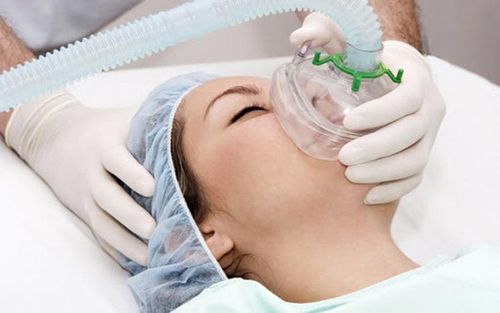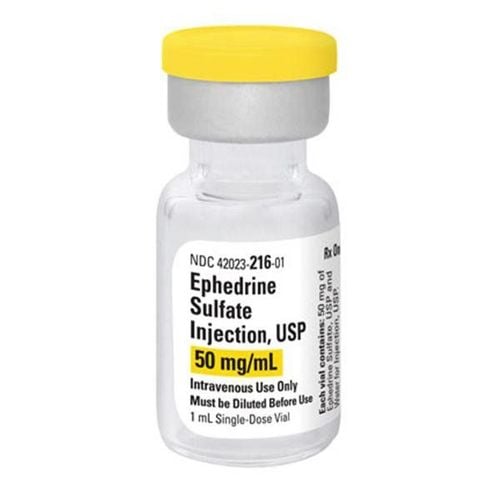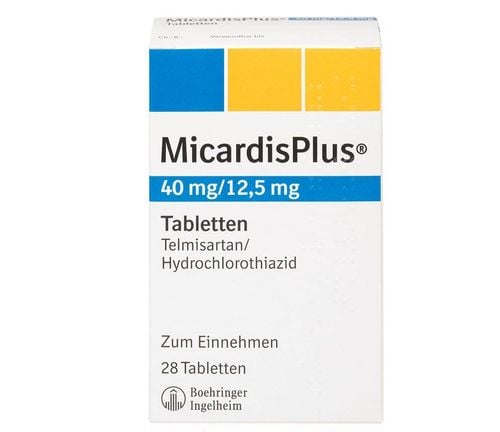This is an automatically translated article.
The article is professionally consulted by an Anesthesiologist - General Surgery Department - Vinmec Nha Trang International General Hospital.
Malignant hyperthermia is a serious type of reaction that occurs to particular drugs and is used in general anesthesia, in susceptible individuals. Symptoms of malignant hyperthermia include muscle stiffness, malignant fever, and tachycardia. Complications can include rhabdomyolysis and high blood potassium, which can even lead to death. Most people who are predisposed to malignant hyperthermia are generally normal to non-exposure.
1. Malignant hyperthermia
Malignant Hyperthermia is a drug-induced disease that affects individuals with myopathy. Malignant hyperthermia is characterized by increased skeletal muscle catabolism, and is often triggered by certain anesthetic agents, such as Halogenes and Succinycholine.This is a very urgent, life-threatening condition and needs to be treated promptly.
Prevalence:
The incidence of malignant hyperthermia depends on the susceptibility to the disease in the population and the use of anesthetic drugs that trigger the episode. The incidence of malignant hyperthermia in the general population is estimated at 1 in 30,000 cases of volatile anesthetics. This incidence may be apparently low because some cases are mild and easily missed. Children under the age of 19 account for 45 to 52% of reported cases. Reactions are more common in men than in women, with a ratio of 2: 1. Malignant hyperthermia occurs in 1 in 5,000 to 50,000 cases of people using anesthetic gases. Susceptibility to malignant hyperthermia is probably higher, as many people at high risk for malignant hyperthermia have never been exposed to drugs that trigger this response. Talk to your doctor for more information.
2. Symptoms
2.1 What are the signs and symptoms of malignant hyperthermia? Signs and symptoms of a malignant hyperthermia reaction include a dangerously high body temperature, severe muscle spasms, and a rapid heart rate. In most cases, the gene defect that causes malignant hyperthermia is hereditary. It is called an inherited pharmacokinetic disorder because of the reaction caused by certain drugs. Genetic testing can reveal mutated genes.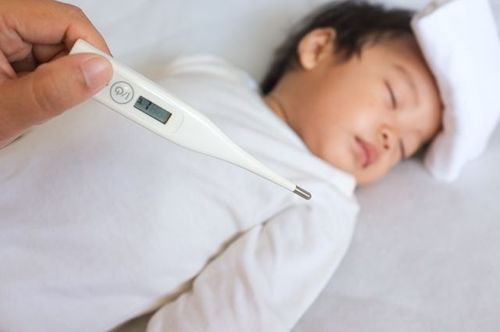
Rối loạn dược lý di truyền vì phản ứng gây ra do một số loại thuốc nhất định
Malignant hyperthermia may not trigger a response during initial surgery. However, the risk of a reaction to future surgeries remains. For those at risk of a reaction, choose safe medications that are available.
In rare cases, people with malignant hyperthermia develop signs of a reaction after intense physical activity.
It is possible to experience other symptoms that are not mentioned due to its prevalence. Therefore, if there are any other abnormal signs, it is necessary to immediately notify the doctor for an accurate and timely diagnosis.
3. Cause
Causes of malignant hyperthermia:Hereditary malignant hyperthermia. As long as one parent has malignant hyperthermia, the child will inherit this condition.
This condition can occur in conjunction with several other inherited myopathies such as multicore and central core neuromuscular diseases.
4. Risk of acquiring
While this condition usually occurs in people without other serious health problems, certain inherited myopathies (including central core and multicore disease) are associated with increased susceptibility malignant heat.5. Diagnosis and treatment
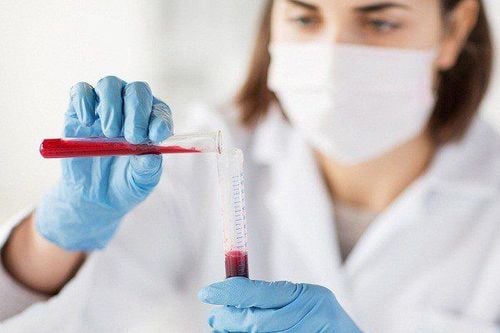
Điều trị tăng thân nhiệt ác tính như thế nào?
If someone in the family has malignant hyperthermia or even dies of unknown cause under anesthesia, these people may have a rapid and irregular heartbeat.
Tests for malignant hyperthermia may include:
Blood clotting tests (PT or clotting time; part-time PTT or thrombloplastin) Blood chemistry panel, including CPK (phosphokinase level) creatinine increases in the blood when muscle is destroyed during illness) Genetic testing to look for defects in the genes involved in the disease Muscle biopsy Myoglobin urine (muscle protein) 5.2 Methods used to treat the body malignant hyperthermia If there is a family history of malignant hyperthermia or a family member who has had problems with anesthesia, inform the surgeon and anesthesiologist before surgery . This can help doctors prepare and respond quickly to possible reactions.
Dantrolene (Dantrium) is the only antagonist used to treat reactions in malignant hyperthermia. Ice packs, cooling blankets, and fans can be used to lower body temperature.
5.3 The right lifestyle The following lifestyle and home remedies can help you cope with malignant hyperthermia:
Tell your doctor if anyone in your family has the condition. this, especially before surgery with general anesthesia. Avoid stimulant drugs such as cocaine, amphetamines (fast) and ecstasy. These drugs can cause problems similar to malignant hyperthermia in people who are prone to this condition. Genetic counseling is recommended for anyone with a family history of myopathy, muscular dystrophy, or malignant hyperthermia. Malignant hyperthermia if not treated promptly can lead to death. However, now the mortality from malignant hyperthermia has decreased significantly compared to the time when Dandrolene was not used. According to the study of malignant hyperthermia of the North American statistical agency, the overall mortality rate is about 1.4%. The risk of cardiac arrest and death is higher in elderly patients with multiple comorbidities, young adults with high body weight, and those with disseminated intravascular coagulation.
Vinmec International General Hospital is one of the hospitals that not only ensures professional quality with a team of leading medical doctors, modern equipment and technology, but also stands out for its examination and consultation services. comprehensive and professional medical consultation and treatment; civilized, polite, safe and sterile medical examination and treatment space.
Please dial HOTLINE for more information or register for an appointment HERE. Download MyVinmec app to make appointments faster and to manage your bookings easily.




